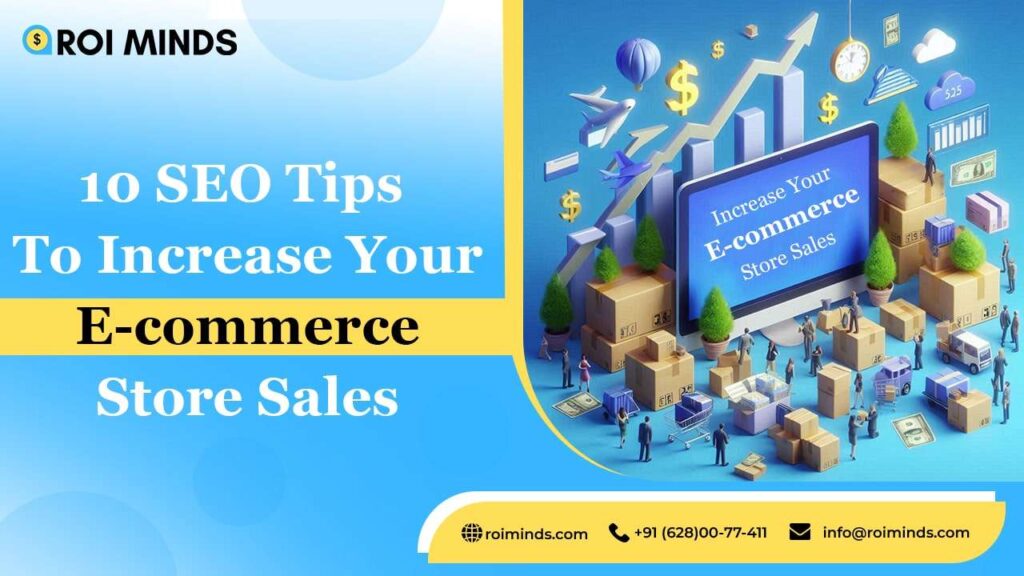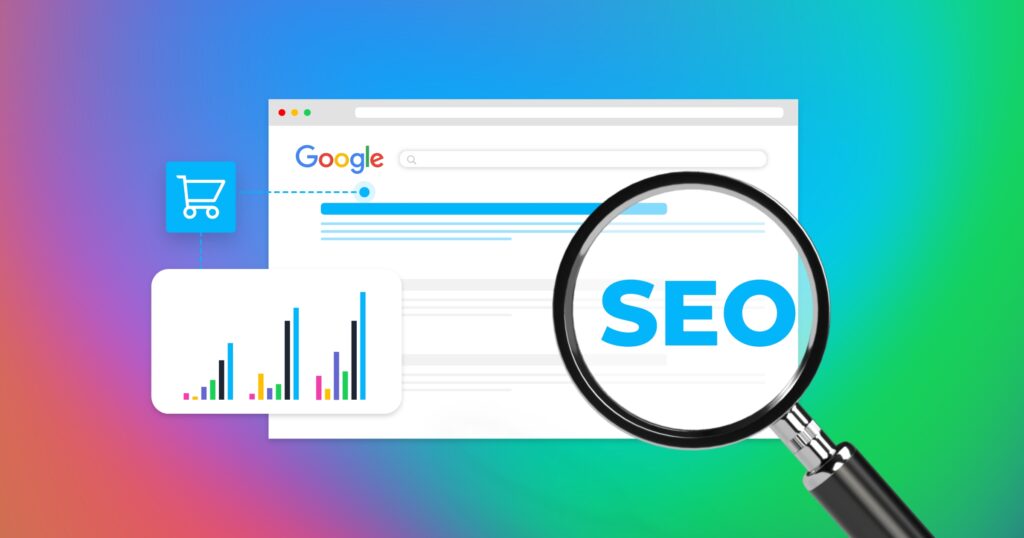Welcome to a helpful guide on how to improve your e-commerce traffic with essential SEO tips. In today’s digital age, having a strong online presence is crucial for the success of your e-commerce business. By implementing these 10 essential SEO tips, you can drive more traffic to your website and increase your chances of making sales. From optimizing your product descriptions to utilizing the right keywords, these tips will help you reach more customers and grow your online business. Let’s dive in and start boosting your e-commerce traffic today! Have you been struggling to get traffic to your e-commerce website? Are you looking for ways to improve your search engine visibility and drive more customers to your online store? Look no further, as we have put together this comprehensive guide to help you optimize your e-commerce website for search engines and increase your online visibility. Here are 10 essential SEO tips that will help you drive more traffic to your e-commerce website and grow your online business.
Understanding E-commerce SEO
E-commerce SEO is the process of optimizing your online store’s website to improve its visibility in search engine results pages (SERPs). By making sure that your website is properly optimized for search engines, you can increase your chances of ranking higher in search results and driving more relevant traffic to your online store.
When it comes to e-commerce SEO, there are specific strategies and techniques that you can implement to improve your website’s visibility and attract more potential customers. In this article, we will discuss 10 essential e-commerce SEO tips that will help you drive traffic to your online store and boost your sales.
1. Conduct Keyword Research
Keyword research is the foundation of any successful SEO strategy. By conducting keyword research, you can identify the terms and phrases that your target audience is using to search for products or services online. Focus on long-tail keywords that are relevant to your e-commerce website and products, as these can help you attract highly targeted traffic to your site.
For example, if you sell vintage clothing online, you may want to target keywords such as “vintage clothing online” or “retro fashion for sale.” Use keyword research tools like Google Keyword Planner or SEMrush to identify relevant keywords with high search volume and low competition.

2. Optimize On-page SEO
On-page SEO refers to the optimization of individual web pages to improve their search engine rankings. When it comes to e-commerce websites, on-page SEO optimization is crucial for driving traffic and increasing conversions. Make sure to optimize your product pages, category pages, and other important pages on your website for relevant keywords.
Optimize your meta titles, meta descriptions, headings, and image alt text with your target keywords. Use schema markup to provide search engines with additional information about your products, such as pricing, availability, and reviews. Ensure that your website’s URL structure is optimized and user-friendly, and that your site loads quickly and is mobile-responsive.
3. Create High-Quality Content
High-quality content is essential for e-commerce SEO success. By creating informative, engaging, and relevant content for your target audience, you can establish your website as a valuable resource in your industry and attract more organic traffic. Consider creating blog posts, product guides, how-to articles, and other types of content that provide value to your customers.
When creating content for your e-commerce website, make sure to incorporate your target keywords naturally and avoid keyword stuffing. Use high-quality images and videos to enhance your content and make it more visually appealing. Encourage user-generated content, such as customer reviews and testimonials, to build trust and credibility with your audience.

4. Optimize Product Descriptions
Product descriptions play a crucial role in e-commerce SEO. When writing product descriptions for your online store, make sure to include relevant keywords that describe your products accurately. Use unique, descriptive language to highlight the features, benefits, and specifications of your products.
Optimize your product descriptions for search engines by incorporating your target keywords naturally throughout the content. Avoid duplicate content and make sure that each product description is unique and informative. Include product reviews, ratings, and other user-generated content to enhance the credibility of your products and improve your search engine rankings.
5. Improve Site Architecture
Site architecture refers to the way that your website is structured and organized. A well-structured website with clear navigation and internal linking can improve user experience, increase engagement, and boost search engine rankings. Make sure that your e-commerce website is organized logically with categories, subcategories, and tags that make it easy for users to find products.
Optimize your website’s navigation menu and footer to make it easy for users to navigate between pages and find what they are looking for quickly. Use internal linking to connect related pages on your site and improve search engine visibility. Ensure that your website’s sitemap is up-to-date and submitted to search engines for indexing.

6. Utilize Technical SEO
Technical SEO involves optimizing the technical aspects of your website to improve its search engine rankings. Technical SEO is crucial for e-commerce websites, as it can help search engines crawl and index your site more effectively. Make sure that your website is optimized for mobile devices and loads quickly to provide a seamless user experience.
Optimize your website’s URL structure, meta tags, and header tags to improve search engine visibility. Use canonical tags to avoid duplicate content issues and ensure that search engines understand the relationship between different pages on your site. Implement structured data markup to provide search engines with additional information about your products and services.
7. Implement Local SEO Strategies
Local SEO is an essential component of e-commerce SEO, especially if you have a physical store or serve customers in specific geographic locations. By optimizing your website for local search, you can attract more local customers to your online store and increase foot traffic to your brick-and-mortar store. Make sure that your business information is consistent across all online directories, including Google My Business.
Optimize your website’s landing pages and meta tags for local keywords that are relevant to your target market. Encourage customer reviews and testimonials to build trust and credibility with local customers. Consider creating location-specific content, such as local guides, events, and promotions, to attract more local traffic to your website.

8. Focus on User Experience
User experience (UX) plays a critical role in e-commerce SEO. By providing a seamless and intuitive user experience on your website, you can reduce bounce rates, increase time on site, and improve search engine rankings. Make sure that your e-commerce website is easy to navigate, visually appealing, and optimized for mobile devices.
Optimize your website’s load speed, navigation menu, and search functionality to make it easy for users to find products and information quickly. Use clear calls-to-action (CTAs) and product recommendations to guide users through the buying process and increase conversions. Test different elements of your website, such as headlines, images, and CTAs, to identify areas for improvement and optimize for better user experience.
9. Monitor and Analyze Performance
Monitoring and analyzing the performance of your e-commerce website is essential for SEO success. By tracking key metrics and analyzing data, you can identify trends, measure progress, and make informed decisions to improve your website’s visibility and drive more traffic. Use tools like Google Analytics and Google Search Console to track performance metrics, such as organic traffic, click-through rates, and conversion rates.
Monitor your website’s rankings for target keywords and identify opportunities for improvement. Analyze user behavior, such as bounce rates, time on site, and page views, to understand how users interact with your website. Use A/B testing and heatmaps to optimize your website’s design, content, and functionality for better user experience and increased conversions.

10. Stay Updated with SEO Trends
SEO is an ever-evolving field, with new trends and updates constantly changing the way that search engines rank websites. To stay ahead of the competition and improve your e-commerce SEO strategy, it’s essential to stay updated with the latest industry trends and best practices. Follow industry blogs, attend webinars, and participate in online forums to stay informed about the latest SEO developments.
Keep an eye on search engine algorithm updates and adjust your SEO strategy accordingly to maintain your website’s search engine rankings. Experiment with new tactics, such as voice search optimization, video SEO, and local search optimization, to improve your online visibility and attract more traffic. By staying updated with SEO trends, you can ensure that your e-commerce website remains competitive and continues to drive traffic and conversions.
In conclusion, implementing these essential e-commerce SEO tips can help you improve your online visibility, attract more traffic, and increase conversions for your online store. By focusing on keyword research, on-page SEO optimization, high-quality content, and user experience, you can create a powerful SEO strategy that drives results and helps you grow your e-commerce business. Start implementing these tips today and watch as your website climbs the search engine rankings and drives more traffic to your online store.
